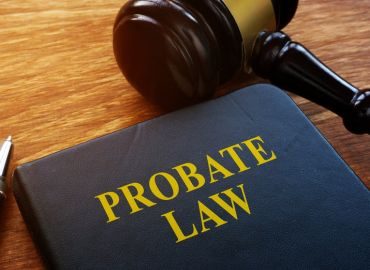Welcome to Probate Contents Valuation
Welcome to Probate Contents Valuation, your go-to specialists for independent valuations of fine art, antiques, and Jewellery .
Independent Valuations of Art, Antiques, and Jewellery for Probate
Boasting more than thirty years of expertise in the art market, we collaborate with Lawyers, Executors, Trustees, and the General Public, offering detailed written appraisals for purposes of probate or for items considering sale at auction.
When the Estate verges on or surpasses the Inheritance Tax limit, it’s critical to appraise all general and household items (chattels), regardless of perceived value. This step is vital to circumvent any possible examination by the Inland Revenue.

Help with Probate and Valuation Services
Probate Contents Valuation is a family-run company that works all over the UK, offering services to help with the Probate and Valuation process in a straightforward, affordable, and quick manner. Our long-standing professional background enables us to provide a wide range of probate-related services, all managed through one easy point of contact. We perform detailed probate valuations, inventory lists, and offer direct support with the probate journey. Additionally, we oversee extra services from highly selected third-party suppliers, making sure you get the best quality and value in probate help.
✔ Estate Assessment for Probate Requirements
✔ Assessing an Estate for Probate – Key Information
✔ Understanding Estate Evaluations for Probate
Contemplating financial and practical matters after losing someone close can feel insignificant during a period meant for quiet reflection and cherished memories. Despite this, you’ll face urgency to begin the probate valuation process, particularly if the estate’s value may surpass the inheritance tax thresholds set by Her Majesty’s Revenue & Customs (HMRC). Calculating an estate’s value for Inheritance Tax and informing HMRC is integral to the probate application.
1
Firstly, you should communicate in writing with any entities holding financial interest in the deceased's assets and liabilities, which could include:
2
Their bank or building society - inquire about changing or halting standing orders and direct debits and request any share certificates or property deeds.
3
The pension provider (including the Department for Works and Pensions for state pensions) - verify if private pensions contribute to the estate's value.
4
The decedent's employer - there may be owed salary or wages, unused holiday pay, or bonuses.
5
Do not neglect National Savings and Investments for potential assets like Premium Bonds, and if necessary, take advantage of their tracking service and resources.
6
For company shares, provide the share amount, company name, and share certificate number if known.
7
Contact mortgage providers for homes or investment properties to discuss payment requirements during the probate process or potential coverage options through policies and make arrangements for ongoing payments or negotiate a payment holiday if necessary.
You'll need to gauge the estate's value to estimate any Inheritance Tax liability. No tax is due if:
✔ The entire estate goes to the deceased’s spouse or civil partner.
✔ It’s bequeathed to a charity or community amateur sports club.
✔ Its value falls below the £325,000 Inheritance Tax threshold.
Yet, exceptions exist for estates of widowed individuals or those passing homes to descendants, where a £500,000 threshold might apply.
If the deceased’s estate is under their threshold, the remainder can augment their partner’s allowance. For example, an estate valued at £200,000 could increase their partner’s threshold to £450,000.


Estimating the estate's value involves:
✔ Summing up the decedent’s assets.
✔ Including gifts bestowed within the seven previous years.
✔ Accounting for trust interests held by the deceased.
Subtract any liabilities like mortgages or credit cards to derive a rough estate value, ensuring it suffices for taxation assessments, with accurate valuations needed for tax-owing estates.
Seeking the expertise of a legal advisor can employ all possible allowances to lower potential Inheritance Tax.
Catalogue the decedent's possessions, which might encompass:
Estimate each based on open market values on the death date.
Even assets bequeathed to spouses, partners, or charities must be included, as they may not incur tax.
Jointly-held assets need division and valuation based on ownership type:
“Joint tenants” implies automatic transfer to the co-owner on death.
✔ Split evenly among civil partners or spouses.
✔ For non-partner joint owners, each owner’s portion should be valued with a 10% reduction for the deceased’s share.
“Tenants in common” have different rules, especially in Scotland, where subtracting £4,000 from the asset’s total value prior to division is standard.
Debts must be listed separately to HMRC, omitting them from the estate’s rough value but reporting them alongside the estate’s valuation and include any monies owed on loans or unpaid bills.
In conclusion, this guide aims to aid in the estate’s management. While complex, assistance is available for general advice, directing to more resources, and detailed property assessment – all in accordance with HMRC’s stipulations.
If you want to know more on how we can help you with Probate Contents Valuation, Please feel free to contact us.
Request a FREE quote
Fill out our contact form, and we’ll respond promptly to address your inquiries or service requests.








